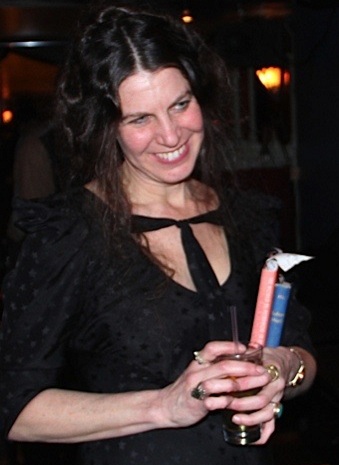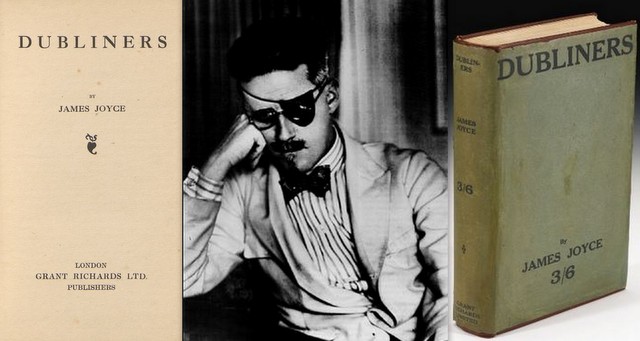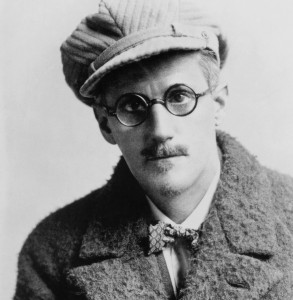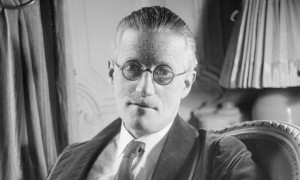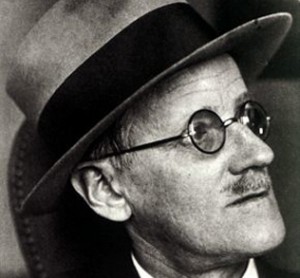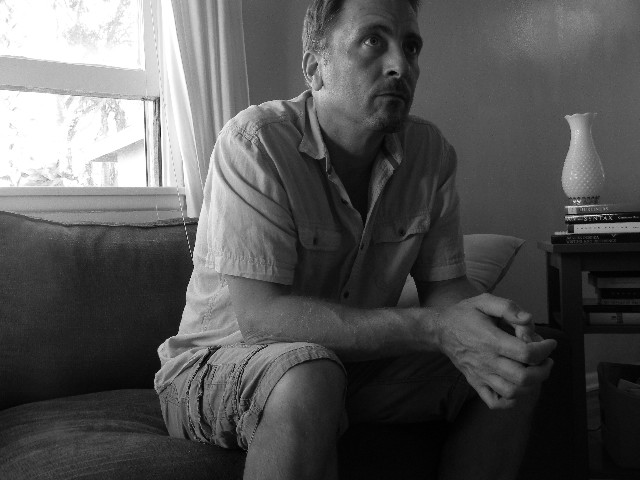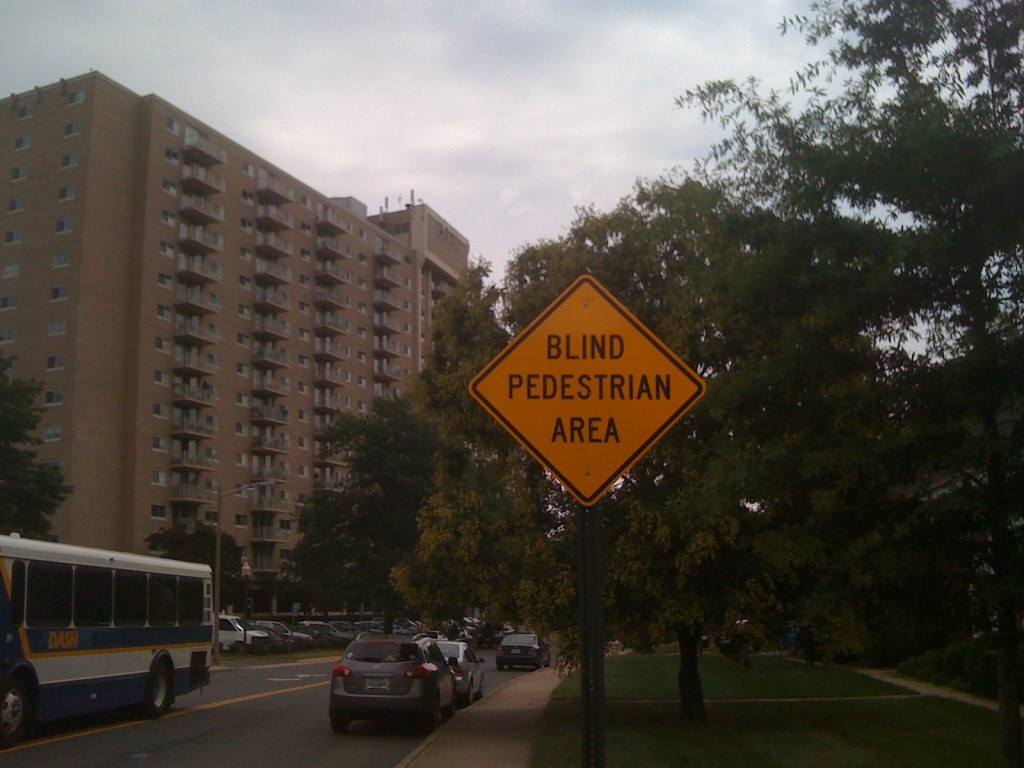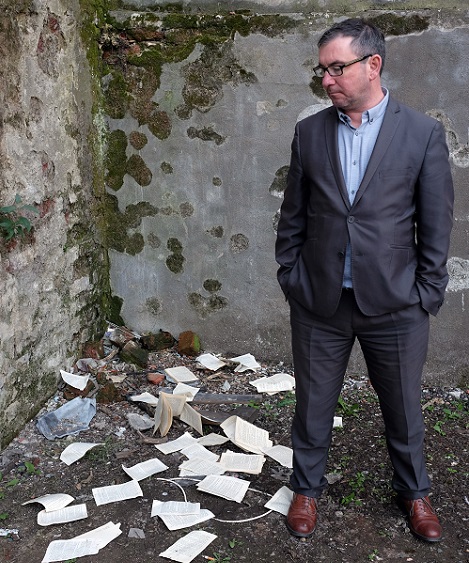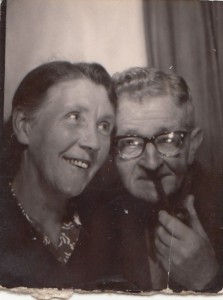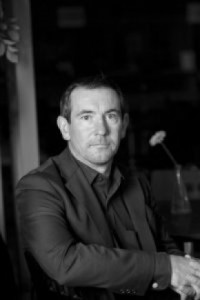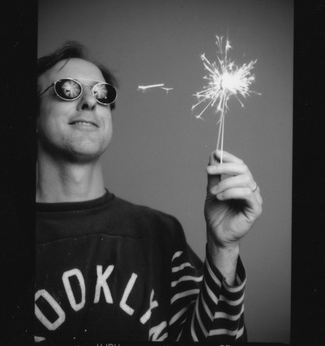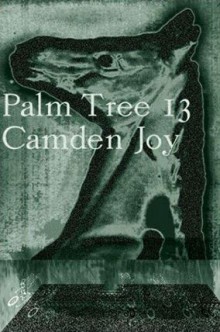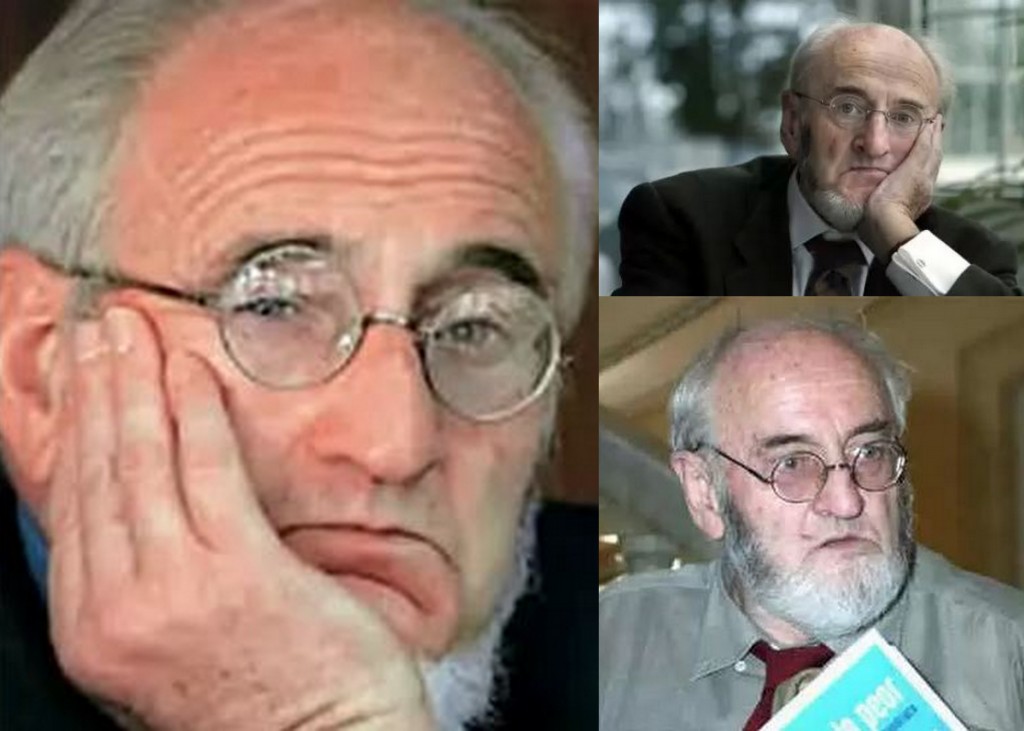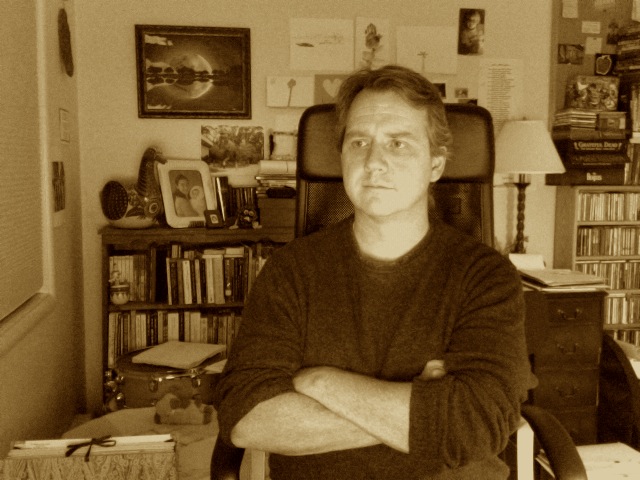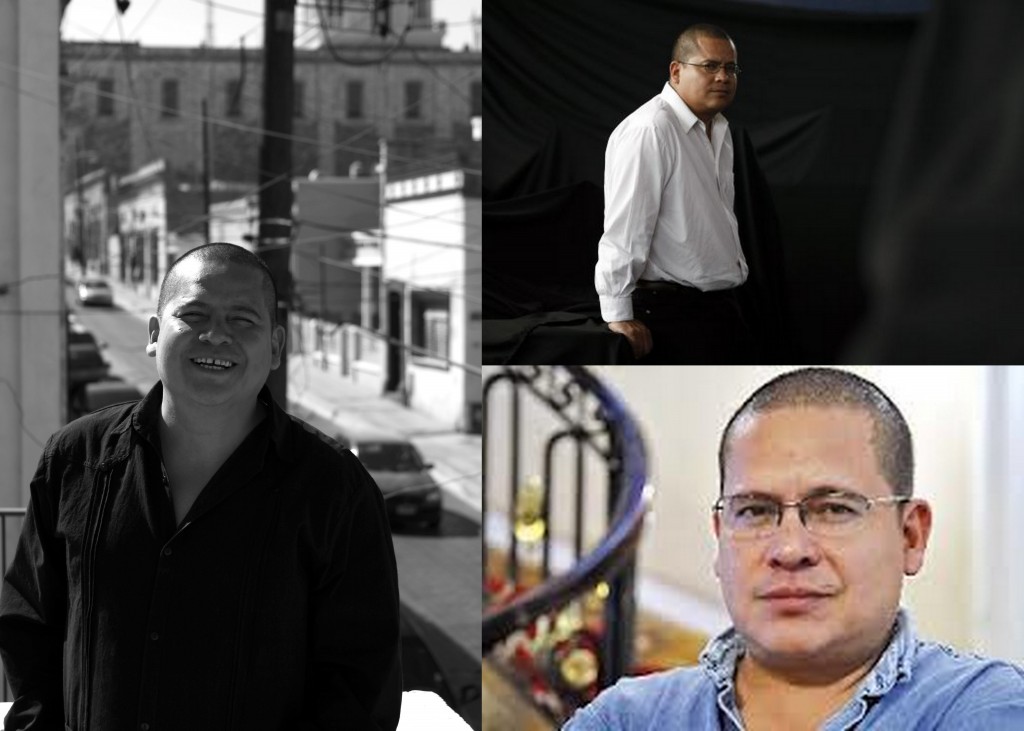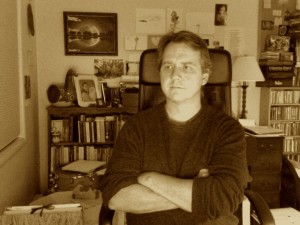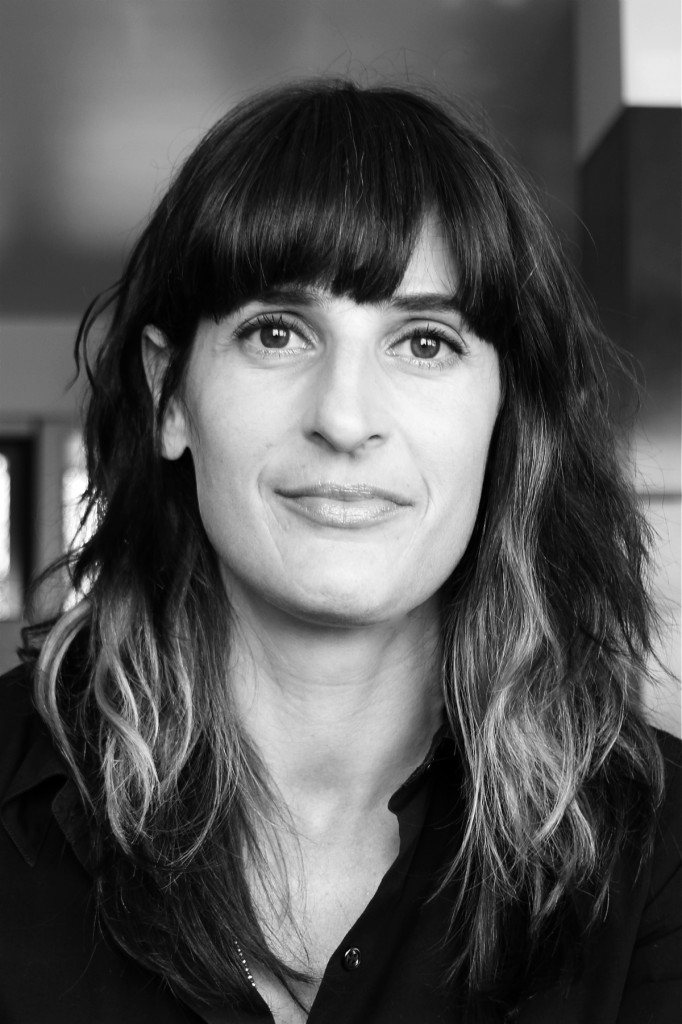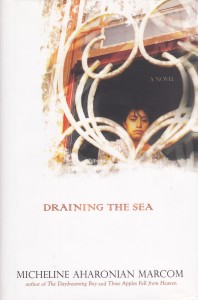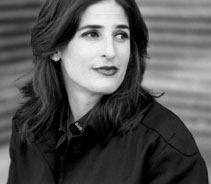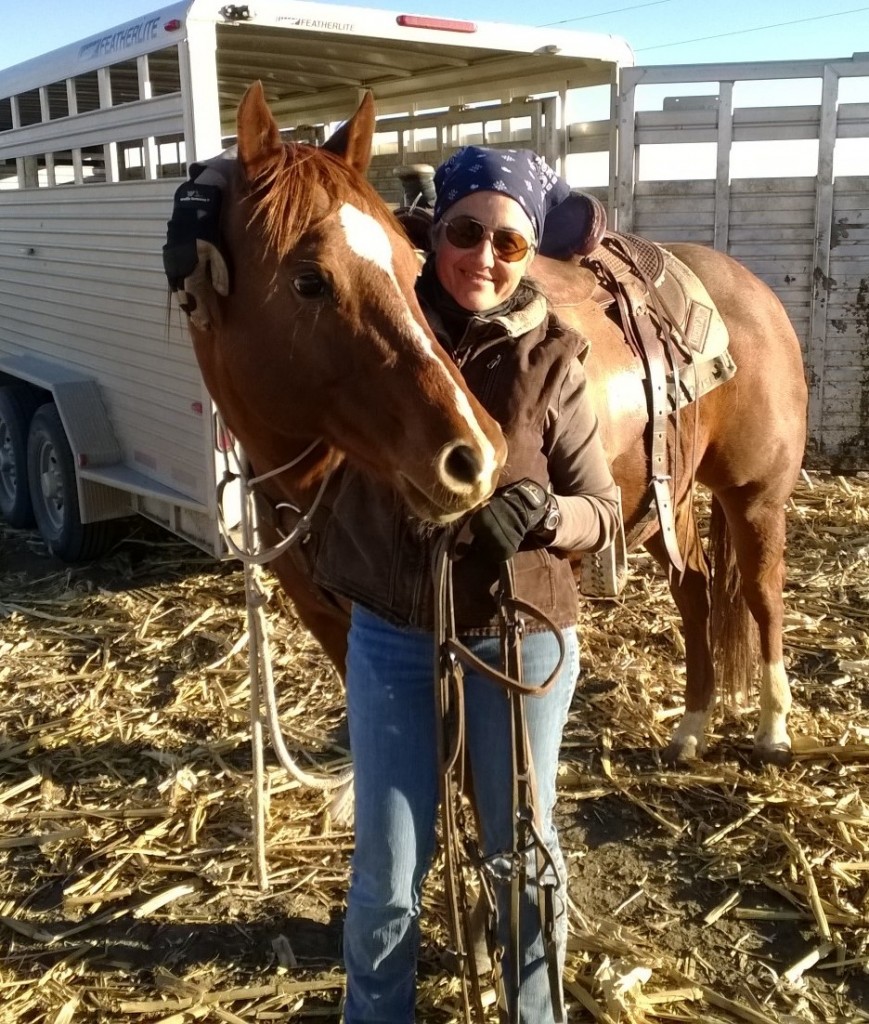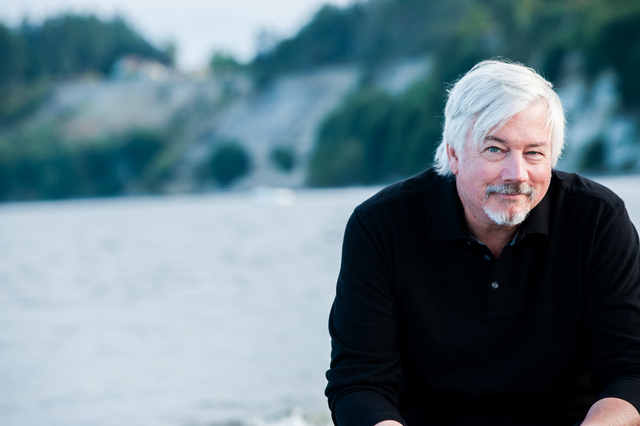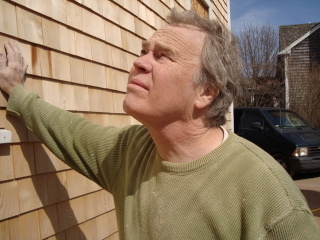 Beatrice, Gustave Doré
Beatrice, Gustave Doré
 Wayne Hankey
Wayne Hankey
.
“I declare that to recommend Goodness and Innocence hath been my sincere Endeavour in this History. The honest Purpose you [his Patron] have been pleased to think I have attained: and to say the Truth, it is likeliest to be attained in Books of this Kind; for an Example is a Kind of Picture, in which Virtue becomes as it were an Object of Sight, and strikes us with an Idea of that Loveliness, which Plato asserts there is in her naked Charms.” —“Dedication,” The History of Tom Jones, a Foundling.
Of Sophia “There is indeed in perfect Beauty a Power which none almost can withstand.” —Tom Jones
“Sophia expecting to find no one in the Room, came hastily in, and went directly to a Glass which almost fronted her, without once looking towards the upper End of the Room, where the Statue of Jones now stood motionless.—In this Glass it was, after contemplating her own lovely Face, that she first discovered the said Statue; when instantly turning about, she perceived the Reality of the Vision” —Tom Jones
Jones replied “’Don’t believe me upon my Word; I have a better Security, a Pledge for my Constancy, which it is impossible to see and to doubt.’ ‘What is that?’ said Sophia, a little surprised. ‘I will show you, my charming Angel,’ cried Jones, seizing her Hand, and carrying her to the Glass. ‘There, behold it there, in that lovely Figure, in that Face, that Shape, those Eyes, that Mind which shines through those Eyes: Can the Man who shall be in Possession of these be inconstant? Impossible! My Sophia….You could not doubt it, if you could see yourself with any Eyes but your own.” —Tom Jones
“We have found beauty shining most clearly through the clearest of our senses; for sight is the sharpest of the physical senses, though wisdom is not seen by it, for wisdom would arouse terrible love, if such a clear image of it were granted as would come through sight, [1] and the same is true of the other lovely realities; but beauty alone has this privilege, and therefore it is most clearly seen and most lovely.” —Phaedrus
§
Having chosen to stomp with me through history in seven league boots, you will expect neither minute accuracy nor subtlety. The aim of my outrageous generalizations is to present some features of conversion as represented over about twenty-five hundred years in the pagan and Christian west in a way which may prove illumining because not expected. Rather than looking at conversion as primarily a religious phenomenon, though not leaving this out, I shall mainly present it as psychic, ontological, and secular.[2] Moreover, although these three aspects can be seen together at almost every point, in order to bring out differences, I shall stress the psychological through Plato’s dialogues, the ontological through Neoplatonic–Peripatetic systems, and the secular through 18th and early 19th century novels of Samuel Richardson, Henry Fielding and Jane Austen. The elements touched on from Plato and his Late Ancient and Medieval successors will largely be determined by what is modified or suppressed by our cast of English novelists.
Our conclusion with Tom Jones would justify beginning with the Odyssey and its hero’s conversion as return home drawn by the faithful Penelope; Fielding, the Etonian, the most learned mythologically and philosophically of our novelists, looks back to that paradigm.[3] I begin rather with a foundational and secular representation, that of the Cave and the Line in Plato’s Republic. There the gods and religious practice are not mentioned, either as the goal or means of the conversion. They stand in the background, because Parmenides’ The Way of Truth belongs to that. They are certainly found as end and means in the ἀναγωγή described by Diotima in the Symposium and in the Gnothi seauton of the Alcibiades to which the Cave conversion is assimilated in the Platonic tradition. The divine and religious practice will belong to the Platonic ἀναγωγή, not only for the Middle and Neoplatonists, but also when the Abrahamic monotheisms and Platonism merge so as to determine a fundamental of the Western religious and philosophical traditions. There, most notoriously in Augustine’s account of the Trinity and in its Latin successors, even the Divine Being will convert upon Itself.[4]
/
From the Cave to the Divine Mirror: Conversion in the Republic, the Symposium, and the Alcibiades[5]
By way of the analogy of the Cave, the movement, of the prisoners bent down by their chains, up the Line from ignorance, non-being, and darkness to knowledge, being, light and their source, the Good, is “to turn around” (στρέφειν). A journey upwards, a conversion (ἀναγωγή or περιαγωγή) is required. This demands someone with the art of leading around (τέχνη…τῆς περιαγωγῆς), who can convert (μεταστραφήσεται). Ultimately this requires that someone who has seen the light return to the dark to help the prisoners break their chains, turn around, move upwards and out.[6] The resulting soteriology is most influentially and completely worked out philosophically by Iamblichus and Proclus. Religions, pagan, Jewish, Christian, Muslim have this idea and these images at their centre and a converting saviour or saviours (Protagoras, Moses, Jesus, Mohammed).
 via globalnet.co.uk
via globalnet.co.uk
 Plato’s Cave
Plato’s Cave
Convergence of the Abrahamic religions and Platonism in respect to this Platonic conversion was assisted by ἐπίστρεψον in the repeated refrain “Turn us again, O Lord; show us the light of thy countenance (πρόσωπόν) and we shall be saved” of Psalm 79 in the Septuagint, translated in the Vulgate and English by convert,[7] and by the use of the same language in both works in Lamentations 5.[8] Equally, the representation of that from which we are saved encourages assimilation. We are bent down (κατεκάμφθην),[9] incurvatus in Latin, which describes for Augustine the state of the idolater divinizing material objects,[10] and, when the Prayer of Manasse added “by many chains of iron”, it is not surprising to find that quoted by Aquinas.[11] Anselm may be linking the Psalm with Boethius who certainly knew Plato’s text when he describes the fallen children of Adam as “bent over double so that they can only see down.”[12] Bonaventure is looking back to Anselm when he describes fallen blind humanity as “incurvatus in tenebris.”[13]
The Consolation of Philosophy might be called a secularized Christianity insofar as that religion is assimilated to the common Platonism of Late Antiquity and never shows itself directly. The itinerarium of the imprisoned and condemned Boethius begins with his eyes cast down to the earth “in terram defixo,” so that saving Philosophia must sit or bend down to come to him.[14] Its centre, in every sense, is the famous prayer, “O Qui Perpetua,” sung by Philosophia on the authority of Plato’s Timaeus, and summarizing its doctrine, so as to effect the conversion of human ratio beyond itself up the Line to intellectus.[15] Beatrice, “cerchiato de le fronde di Minerva” in the Commedia, effects the same for Dante.[16] Tom Jones is converted to and by Sophia, but she is best translated as “prudence”. Its conclusion in Boethius and Dante is the Plotinian simplification of vision so that reason is drawn toward the divine intuition. Central to its means is a knowledge of the nature of Fortuna, unceasing change, which is mostly gained by humans from the experience of practical life. In common with the Platonic tradition, e.g. Plotinus, Iamblichus, and Proclus, Boethius teaches that Fate or Fortune operates under, and is an instrument of, Providence which characteristically brings good out of evil.[17] The use of Fortune by Providence, and the Providential drawing of good out of evil, are essential to Tom Jones and the other secular accounts of conversion.
 Interview between Tom Jones and Sophia Western
Interview between Tom Jones and Sophia Western
Plato and Aristotle turn the Delphic Gnothi seauton into a means of conversion by a reversal of Socratic philosophical religion where it agrees with the poets as the inspired revealers of Hellenic religion. For Socrates, only God is wise and the Delphic Gnothi seauton is directed against hubristic human pretence to know. In contrast, for Plato and Aristotle, it is a command to know what we are through knowing the divine, so (to quote Aristotle who will be taken up by Plotinus in this and much else) “being human we are not to think like mortals” but rather strive to participate the divine life.
The main dialogue employed for teaching the discipline of self-knowledge was the Alcibiades Major of Plato. In it Socrates, as the faithful lover, is represented in conversation with Athens’ most fatally beautiful kouros. Read early by those being educated in the Neoplatonic schools, the Oracle’s admonition is interpreted so as to require knowledge of self through the higher namely: the soul, the true lover and guide, and, ultimately, God. Mirroring is essential to understanding both what is (as theophany) and our knowing. Once again there is an important convergence. St Paul, writing to the Corinthians about the itinerarium love travels from lower to higher kinds of knowing until it reaches the mutual divine human intuition Boethius sought, compares our present knowledge to obscure vision through a mirror.[18] Plotinus uses mirroring repeatedly and variously, so, for example, the presence of soul to bodies is spoken of “as giving images of itself, like a face seen in many mirrors.”[19] We may say that Dante meets Beatrice in and as mirror.[20] It is especially important for the representation of Sophia and Allworthy in Tom Jones, that mirroring enables transcendence and immanence simultaneously. With such a convergence of Plotinus and Paul, it is not surprising that the mirror is important to Augustine, most notably in the De Trinitate which depends on moves back and forth between the Divine Trinity and its images in the human and other creatures.[21] The Itinerarium mentis in Deum of Augustine’s disciple Bonaventure represents everything through an infinitely complex system of mirrors, and conversion up the Line is from one kind of mirroring to a higher.[22]
 Dante and Beatrice, Henry Holiday, 1884 via Wikipedia
Dante and Beatrice, Henry Holiday, 1884 via Wikipedia
The ultimate goals of conversion are both given in the analogy of the Line and they correspond to the two ideas of God which will develop in the Western tradition: God as the identity of thought and being, at the top of the Line, and, above it, God as the source of thought and being but beyond both. The Good transcends the Line and its vertical division between the kinds of apprehension and their objects.[23] The first will be definitively deified in Aristotle’s highest substance, the self-thinking thought. It merges with the divinity of the Abrahamic religions when the Septuagint translated the “I am that I am” in terms of einai, which, as idipsum esse, is the most proper name of God for Aquinas and Augustine. [24] The Good ἐπέκεινα (Beyond), when merged with the One Non-Being of the Parmenides dialogue, will point to Plotinus’ Father God beyond nous and, when Proclus’ Commentary on the Parmenides is added into the tradition, will point us to the ultimate of the Mystical Theology of the Areopagite, so profoundly and widely influential. Of course the goal of conversion is not mere theory in the limited sense of that, but is given in yet another dialogue, the Theaetetus “to become like God as much as possible.” (ὁμοίωσις θεῷ κατὰ τὸ δυνατόν)[25] For Jews and Christians this is put in terms of Genesis. The goal is to move from “image” to “likeness”.[26]
In Antiquity and the Middle Ages, those converted to the contemplative life, and what is beyond it, sought union with the First, or at least ecstasy by moving with the divine activities around it. In the novels of classical modern Protestantism we are treating, marriage with the First and divinely inspired enthusiasm are replaced by the union of man and wife. The monkish contemplative embodied in Fielding’s “Man of the Hill” is made ridiculous and heartless: he is inhospitable even to the man who saves his life and ignores the attempted murder of a woman who is saved by Tom.[27]
One more depiction of the goal of conversion and the way to it is required before we have the barest sketch of the elements relative to which the modern secular account is intelligible. That is the way of the love of Beauty described in the Symposium by Diotima. She sets out an anagogy to conformity with God by love’s step by step movement from physical particulars to the more universal and intelligible.[28] It is important for our destination in this paper that she begins with individual beautiful forms and, for our purposes, it makes no difference if, like Augustine, following Plotinus in the ascents of Confessions 7,9, and 10,[29] the movement is more from, than, as with Dionysius, following Iamblichus, through, the sensible images.[30] Diotima, like Richardson, Fielding, and Austen would have us “consider that the beauty of the mind is more honourable than the beauty of the outward form.” From love of the virtuous soul, the ascent will be “to see the beauty of institutions and laws.” From institutions the lover of beauty will turn upward to the sciences, until philosophy brings him to the loveliness of one science.[31] She goes on: “He who has been instructed thus far in the things of love [τὰ ἐρωτικὰ], and who has learned to see the beautiful in due order and succession, when he comes toward the end will suddenly perceive a nature of wondrous beauty… absolute, separate, simple, and everlasting, which without diminution and without increase, or any change, is imparted to the ever-growing and perishing beauties of all other things.”[32] Knowing this beauty by a power of sight raised to it, the lover will be able to bring forth true virtue and “to become the friend of God and be immortal, if humans may.”[33] Thus, the love of beauty also converts us to and makes us like God. It is of the greatest importance for both philosophy and religion that, according to Diotima, ascent to the highest beauty and good is by love, a divinity.[34]
.
Ontological Conversion
There is an alternative Platonic – Peripatetic tradition to the one I have exhibited in terms of the Gnothi seauton which also treats conversion as reflexivity. That tradition depends on the soul having access to its own essence in self-reflexivity and to the noetic by way of mental interiority. In the sillage of Plotinus, among Christians Augustine is its great propagator and conversion is the move inward and upward: “from exterior things to interior ones, from lower to higher.” The alternative tradition comes from the Neoplatonic understanding of thinking and being as the return of the One upon itself. Combining elements from Plato and Aristotle, it is especially worked out by Proclus, and by Christians under his influence, directly (like Dionysius) or indirectly (like Eriugena). It becomes central among Latin Christians after they have assimilated Arabic learning. The so-called Liber de causis, elements of the Corpus Areopagiticum, and, ultimately, works of Proclus, propagate this in the Latin world where it mixed well with what it received from Aristotle to produce the philosophical underpinnings of the Christian systems of Albertus Magnus, Aquinas, Bonaventure, Eckhart and Cusa, to mention a few prominent adherents.
 Plotinus
Plotinus
For Proclus, all reality beneath the One – Good itself is structured by the mone [remaining], proodos [going out], epistrophe [return]. All is in the First, proceeds from it and returns, is converted, back towards its source when it achieves its proper good. Typically, Christians, like Aquinas under the influence of both Augustine’s trinitarian theology and Proclus, will import this conversion into the First itself and then structure their entire theological cosmic systems by it. I shall say something briefly about this kind of ontological conversion in Eriugena and Aquinas and conclude with enough about Dante’s Divine Comedy to provide the transition to, and contrast with, Richardson’s Pamela and Fielding’s Sophia.
After Origen, and with his De Principiis in the background, Eriugena is the greatest systematic theologian of the first Christian millennium. As Jean Trouillard put it, he “reinvented the greater part of the theses of Neoplatonism” having discovered them in the works of Patristic theologians.[35] Eriugena gave his system a Greek title, PERI PHYSEŌN, Concerning Nature (Expos. II 168a); it is a physiologia, a science of nature (Peri. IV 441c). Nature includes “what is and what is not” (Peri. I 441a) and the divine superessential nothingness, beyond all things which are and which are not, is its principle.
The division of nature gives its systematic structure. Nature is completely divided logically, and returns to itself according to the same logic: “first, into that which creates and is not created, second into that which is created and creates, third into that which is created and does not create, fourth, that which neither creates nor is created” (Peri. I 441d). These divisions produce four subjects: 1) God as creator, 2) the primary causes, 3) what is subject to generation in place and time, i.e. the labours of the Hexamaeron, including the human—the work of the sixth day—and its Fall. It, as the terminus of the procession, becomes the point of departure for the return into 4) God as end, the final object of investigation. This MONĒ, PROODOS, EPISTROPHĒ form he discerned in Dionysius.
Eriugena came to understand human nature in such a way, that it became “that in which all things are created (condita est)” (cf. Peri. IV 807a).[36] The human is the workshop of creation (Peri. II 531ab, III 733b, V 893bc); it is the medium in which God creates himself and the universe of beings out of his own nothingness precisely because, uniquely among beings, the human possesses all the forms of knowing and ignorance, including sensation. Because everything is through human perception, there are no absolute objects. As in earlier Platonic systems, the forms have become not only thoughts, but forms of apprehension in various kinds of subject; as Plotinus puts it, “all things come from contemplations and are contemplations” (Enneads III 8 [30] 7, 1-2). In Eriugena, there are, as Stephen Gersh puts it, “thinkers who turn out to be objects of thought…[and] objects of thought which turn out to be thinkers”.[37] Periphyseon is an interplay of diverse subjectivities looking at the universe from different, even opposed, points of view. Because God does not know what he is apart from human reason and sense, these perspectives are theophanies even for God in the human; divine manifestations of which God and the human are co-creators. Reality is mirroring.
A recent article by Paul Rorem indicates the elements which come together to constitute the cosmic conversion at the heart of the theology of the Greek Fathers, primary in Augustine’s Confessions, and communicated by Dionysius and Eriugena to the Victorines and Bonaventure (to give the most limited list). He writes of “Dionysian Uplifting (Anagogy) in Bonaventure’s Reductio”.[38] In Eriugena: “the Dionysian ‘anagogy and epistrophe (return) to God’ became AD DEUM REDUCTIO ET CONVERSIO.” By way of Eriugena “A whole Victorine tradition stems from this Dionysian theme … Hugh appropriates the translation of ανάγω as reducere: ‘Et hoc ideo fecit ut NOS REDUCTERET PER SENSIBILIA AD INTELLECTUALIA hoc est per visibilia ad invisibilia.’ As in Dionysius and Eriugena, the Hugonian ‘uplifting’ is specifically through or by means of the perceptible, an appreciation for the concrete means of ‘reduction’, or uplifting, that is continued in Bonaventure.“[39] We get a sense of what this conversion is in a passage from Bonaventure on the Hexaemeron: “Such is the uplifting metaphysical centre, and this is the sum total of our metaphysics: concerned with emanation, exemplarity, and consummation, that is, to be illuminated through spiritual rays and uplifted to the highest.”[40]
 Aquinas Reading; Detail from Valle Romita Polyptych by Gentile da Fabriano (circa 1400) via Wikipedia
Aquinas Reading; Detail from Valle Romita Polyptych by Gentile da Fabriano (circa 1400) via Wikipedia
By his own account Aquinas’ Summa theologiae gives the subject its proper order, beginning in and determined by its treatment of God in Himself. The logic of the Deus in se is manifested first in the Quinque Viae to the Existence of God and its basic structure does not vary until its completion in the Sending of the Divine Persons.[41] This logic continues into the questions on creation, and thus into the Summa as a whole. There are two gatherings, breaks and transitions within the de deo, but there is a strong impulse throughout, and the structure, when reduced to its elements, is stunningly simple.
The circular motions returning upon themselves are of diverse kinds, but by far the most important are those which Aquinas deduces from the Proclean logic of simple substance.[42] From the Liber de causis and Dionysius, he knows that simple substance has perfect self-return, a shape he has manifested, following Dionysius, in his initial questions on the divine names, beginning at Simplicity and circling around to Unity. In consequence, ipsum esse subsistens is, by the absolute necessity of its nature, knowing and willing.[43] These two operations, processions or emanations—the terms are used more or less interchangeably by Aquinas for whom emanation was a Scriptural term (Liber Sapientiae, 7.25 [44])—are internal to the divine essence. By employing the Neoplatonic notion of motionless motion, Aquinas is able to attribute the characteristics of Plotinian NOUS to Aristotle’s (and his own) God as self-thinking thought predicating life of it.[45]
Although, motionless motion is a metaphor for Aquinas, nonetheless, the divine self-diremption must be real. Thus we get “Et licet motus non sit in divinis, est tamen ibi accipere.” [ST 1.42.1 ad 3]. Accipere and its correlative dare are essential to the logic of infinite esse, as the form under which it is, or contains, the relation of opposites. Such a relation is real, the differentiation of the essence in the opposition of action and reception is not merely “rational”, that is, a creation of perspective. Thus, within the divine simplicity, the two relations of this kind must of necessity form subsistences, or hypostases, to use another word which is both Scriptural and Neoplatonic, or persons.[46] The circumincession, or περιχώρησις of the subsistences in the Divine essence is the fundamental conversion determining all the others. It makes understandable the emanation of finite beings, creation.
Creation, in a series of contrasts with the Divine in itself, is represented as the result of a productive operation, that of power. Unlike knowing and willing, perfect activities really given and received within the essence to become the Trinitarian Persons, power works outside the essence, as a procession or emanation of the Trinitarian subsistences in their essential unity. Unlike the internal operations, power is neither according to nature nor necessity. It constitutes a relation with the opposition of giving and receiving, but, in contrast to the Trinity, the terms are unequal. Thus, the relation is not mutually of the relative terms but in the recipient. So we move from the divine and creation under God’s Providence and Governance in the First Part, to the complete exitus in the Second Part produced by the human empowered as the image of God to create his own world in the pursuit of happiness. The conversio, which is the divine trinitarian life, is realized in the cosmos fallen in the human exitus, by a Chalcedonian interpretation of the hypostatic union in line with the humanism of the 12th century Renaissance. The Third Part is de Christo, qui secundum quod homo, via est nobis tendendi in Deum. In Him is the conversio to the Principle.
 Dante and Beatrice, John William Waterhouse (between 1914 and 1917)
Dante and Beatrice, John William Waterhouse (between 1914 and 1917)
Aquinas’ system gathers in itself all we have treated so far. Dante’s Commedia, which, like the Summa theologiae, is nothing but a complete cosmic conversion and, thus, and only thus, as with Augustine, a personal one, contains even more.
Like the author of Tom Jones, Dante is conscious of being a literary creator. In the dolce stil nuovo he created a Poetic-comic-epic[47] in which, as with Fielding and Cervantes, he gave us the “History of the World in general”. Beatrice tells her prisoner, he was so far gone she had to send him all the way to Hell to convert him. She accuses:
He set his steps upon an untrue way, pursuing those false images of good that bring no promise to fulfillment… ‘He sank so low that every instrument for his salvation now fell short except to make him see souls in perdition.’ And so I visited the threshold of the dead and, weeping, offered up my prayers to the one who has conducted him this far.[48]
“Dì, dì se questo è vero: a tanta accusa/tua confession conviene esser congiunta”. (“Speak, Say whether this is true: to so grave an accusation your confession must be joined”.)[49]
Beatrice, thus, in the Adamic Paradise at the top of the Purgatorio’s mountain of repentance before Dante plunges into its two rivers, one of which derives from the Republic’s Myth of Er by way of Virgil’s Aeneid.[50]
She brings to mind the judgement there and the demands of Philosophia to the prisoner she heals and guides in the Consolation. Beatrice’s demand anticipates Sophia with the penitent Tom and the exigent lady confessors of Jane Austen.[51] Nonetheless, Beatrice and they convert very differently.
 Tom Jones & Sophia Western, from the movie
Tom Jones & Sophia Western, from the movie
It is not so much that their means are very different, and their understanding of the fundamentals of the act of repentance are much the same, but the end is altogether other. Beatrice comes to Dante as the one who particularly moves him by her innocence and beauty of body and soul, but, nonetheless, as also as only one agent in a long chain of mediators including Christ, the Mother of God, and saints above her in the hierarchy. Crucially, as she is moved from above, so also she leads Dante beyond herself. After his repentance is complete, with him already mitred and crowned at the end of his tutelage by Virgil, [52] she will return to her proper place in the Paradiso and he will rise with her. He will not possess her nor she him. Dorothy Sayers writes:
She was thus in fact the vehicle of the Glory—the vessel in which the divine experience was carried—she is, in the allegory, from time to time likened to, or equated with, those other “God-bearers”: the Church, and Divine Grace in the Church; the Blessed Virgin; even Christ Himself. She is the image by which Dante perceives all these, and her function in the poem is to bring him to that state in which he is able to perceive them directly; at the end of the Paradiso the image of Beatrice is—not replaced by, but—taken up into the images, successively, of the Church Triumphant, of Mary, the historic and universal God-bearer, and of God, in whom Image and Reality are one and the same.[53]
 Dante & Beatrice, Gustave Doré
Dante & Beatrice, Gustave Doré
Put differently, coming to her, even to reconciliation with her and with God by her help, is not the end of the journey. There is another whole Cantina, the Paradiso, of contemplation, precisely that which Protestant England rejected when Henry VIIIth dissolved the monasteries, expelled or executed the monks and nuns, refunded the aristocracy, and helped the expansion of the bourgeoisie. Except for some Gothick moments, largely architectural, our secular novelists follow him without regret.
Heaven for them is the future state of reward, whose promise together with the threat of Hell, are used as the ultimate incentives to morality: personal, social, and political order. Heaven’s joys serve the absolutizing of morality, a stance which Nietzsche so convincingly exposed as atheism that their successors recognised themselves in his descriptions and gave up Christian religion and morality both. Heaven is distant and without content; its God hidden. We never enter a substantial spiritual realm or reach out to it. Features of their own society left over from the revolutions in Church and state are forgotten. Not even Jane Austen, buried in Winchester Cathedral, sends us a rumour of scores of Men and Boys choirs in Cathedral, Royal and Collegiate chapels continuing medieval offices. Despite their frightening descriptions of the miseries of most of them, the ultimate present felicity is marriage. Incredible!
/
Conversion in Protestant Secular Romance: Beatrice converts to Protestantism and Marries Dante: Samuel Richardson’s Pamela or Virtue Rewarded (1740)
Tom Jones’ Sophia (1749), the beauty of eternal Wisdom heavenly and incarnate, comes after Richardson’s Pamela (November 1740) and before Austen’s Fanny Price of Mansfield Park (1814). Both of the latter reiterate the kenotic Christ[54] as well as the irresistibly attractive loveliness of Person or Virtue which all share. As such they are the ends of conversion and the means of that, or of damnation. Here, and in the romances of 18th and early 19th century England I shall treat, the ultimate felicity consists in marriage to these descendants, in lineages conscious or unconscious, of Dante’s Beatrice and Plato’s form of Beauty. Flesh and blood marriage to what is heavenly either as the blessed, inspiring, but never possessed, intercessor or as transcendent deity is their “secularization”, as I use this term in this paper, but it means more than this. As we move from Richardson to Fielding and, at the extreme, to Austen, the forms of religion: prayers, sermons, liturgies, theological debates, either disappear or become more and more external to the conversion, or at least to its representation. The operation of Providence is by way of social and psychological forces and religion is hidden, being manifest in these but not alongside them.
Pamela is a fifteen year old universally loved, and irresistibly beautiful, servant in a wealthy and extensive aristocratic household. On the death of her mistress, who added education to her personal beauty, Pamela became the object of first the lust and, then, converted by her, the love of the son and heir. He confesses repeatedly after the conversion that he made what we, and Richardson, understand as the Platonic move from, and by way of, the love of “the Charms of her Person” to “the Graces of her Mind”. After attempting to make her his mistress, and outraged by the impudence of resistance from a minor servant, abducting and imprisoning her, and coming more than once to the physical edge of rape, when he meets with unbreakable, absolutely consistent, and endlessly ingenious resistance, Squire B. transgresses the social boundaries, subdues his pride, and marries her.
 A plate from the 1742 deluxe edition of Richardson’s Pamela, or, Virtue Rewarded showing Mr. B intercepting Pamela’s first letter home to her mother. Original engraving by Hubert Gravelot. via Wikipedia
A plate from the 1742 deluxe edition of Richardson’s Pamela, or, Virtue Rewarded showing Mr. B intercepting Pamela’s first letter home to her mother. Original engraving by Hubert Gravelot. via Wikipedia
Presented as a series of letters, mostly from Pamela to her aged, poor and pious parents from their equally pious daughter, determined to preserve what she calls her “honesty”, the novel is full both of the naive and importunate prayers of one dependent on God’s grace in the terrible exigencies of preserving her virtue against cozening, kidnapping, deceit, and violence, and of the constant self-humiliation and self-blame of the believer. By a deception which belongs to the ceaselessly repeated Augustinian biographical pattern of good brought out of evil, determinative in Pamela, Fielding’s Tom Jones and Amelia, and all the novels of Jane Austen manifesting the government of Providence, Squire B. reads the letters. They enflame his determination to possess their author, not just because her resistance increases her desirability, but also, because, among other reasons, he sees that Pamela’s dutiful prayers for him as her master continue during much of his abuse of her. That a fundamental good will and a love even for him her enemy, and, indeed, her wishing him the ultimate good rules her, is what in the final analysis converts Squire B. The terrible moment for her—terrible because she recognises that she is falling in love with him despite his dreadful abuse and that he might use this to seduce her—and simultaneously the converting moment for him is when she realises that she could not bear to be his accuser on Judgment Day.[55] Her love overcomes his evil.
An important character is an unbeneficed young cleric, Williams, entirely dependent on Squire B., who nonetheless courageously attempts to rescue her—though he is more than balanced by established clergy who oppose any resistance to “the powers that be”. Religion is so much present in its own dress, so to speak, that we even go through the moments of the marriage liturgy of our heroine. The novel was recommended and cited from the pulpits of England. As just suggested by my report of Pamela’s Christlike love of her enemy through which the servant converts the master, the turnings where Pamela acts as alter Christus are crucial. I must say a word about those which occur at the crux of Squire B’s conversion.[56]
In the final and most serious attempted rape Pamela is held down in cruciform shape on her bed by her master on one side and her jailor on the other. Imprisoned at his remote country estate, she is utterly in the power of “Lucifer in the Shape of my Master”.[57] “Wicked Man! said I; wicked, abominable Woman!”[58] In the hands of the wicked, as Jesus is described in the gospel Passion narrative,[59] Pamela cries out to God for death or deliverance. “With Struggling, Fright, Terror” she faints into a fit so deathlike that Squire B. mistakes it for the reality. She is resurrected by his ministrations. His pity aroused, he asks for her forgiveness. Her giving this is his turning. Pamela’s relief brings her to bless God in the words of St Paul, “who, by disabling me in my Faculties, enabled me to preserve my Innocence; and when all my Strength would have signified nothing, magnified himself in my Weakness!”[60]Out of the episode Squire B. is brought to confess: “I could curse my Weakness and my Folly, which makes me that I love you beyond all your Sex, and cannot live without you. But if I am Master of myself, and my own Resolution, I will not attempt to force you to anything again.” Nor does he. Pamela’s advice sought by him as to how he might keep his resolution consists in his sending her back to her parents because she had come to “love Poverty.”[61]
 “Pamela swooning after having discovered Mr B in the closet. He (frighted) endeavouring to recover her. Mrs Jervis wringing her hands, and screaming.” From a series of twelve illustrations to Pamela, by Samuel Richardson (1745, 2nd edition). via http://teainateacup.wordpress.com
“Pamela swooning after having discovered Mr B in the closet. He (frighted) endeavouring to recover her. Mrs Jervis wringing her hands, and screaming.” From a series of twelve illustrations to Pamela, by Samuel Richardson (1745, 2nd edition). via http://teainateacup.wordpress.com
/
Tom Jones’ Platonic Sophia: the Learned Henry Fielding supplies the Romantic Philosophy
There is no love of Poverty in Fielding’s Tom Jones, his sense of the ridiculous is too acute to endure the piety of Pamela for hundreds of pages, and his determination to be true to nature prevents snow white characters. Indeed, Fielding is explicit that theologically, morally, dramatically, and essential to his new genre, the heroic figures in Tom Jones must have flaws, their characters must be mixed.[62] Nonetheless, the most learned of our romancers, Fielding, depicts his paradigmatic heroine though the notion of the naked vision of a Platonic form. We are told that one might almost say “Her Body thought”; “Her Mind was every way equal to her Person; nay the latter borrowed some Charms from the former”.[63] Indeed, her virtue of mind so shines through her beauty that Tom, her true lover, is converted, not from lust for her, but to complete fidelity; his lust is for others.[64] His rival Blifil moves in the opposite way. As his aversion to Sophia increased, so did his lust. Aversion “served rather to heighten the Pleasure he proposed in rifling her Charms, as it added Triumph to Lust.”[65] Thus, Sophia too is subjected to schemes for rape made by the aristocrat cousin, Lady Bellaston, to whom she has fled for refuge, and by her father, proposing that his chosen mate for her, Blifil, use force.
On the road, Sophia is so “distracted between Hope and Fear, her Duty and Love to her Father, her Hatred to Blifil, her Compassion and … her Love for Jones…that her Mind was in that confused State which may be truly said to make us ignorant of what we do, or whither we go, or rather indeed indifferent as to the Consequence of either.”[66] In London, at the mansion of Bellaston, who is maintaining Tom as her amour, carefully keeping the true lovers apart, Sophia encounters Tom by accident. She first views herself and him through a mirror. In their conversation Sophia asks: “Can every Thing noble and every Thing base, be lodged together in the same Bosom?”[67] Nonetheless, when Tom formally proposes Marriage, she accepts. Almost immediately after, they are discovered by Lady Bellaston and an intercourse between Tom, Bellaston, and herself ensues during which all three conceal truths known or suspected by the others. Sophia self-consciously enters the mirror world of appearances and reluctantly teaches herself the “Practice of Deceit”.[68] So totally is Wisdom made earthly. The union of the heavenly pattern with the flawed earthly is the heart of the understanding of which Fielding aims to persuade us. Writing of “Platonic Affection which is absolutely detached from the flesh”, he reports: “I cannot pretend to say, I have ever seen an instance of it.”[69]
Fielding’s relation to Richardson’s Pamela is ambiguous. Praise from the pulpit was matched by criticisms so serious that Richardson revised the text several times. Some were distressed by its sexual explicitness and thought it encouraged licence, some correctly saw its depiction of the violent misuse of power by an aristocrat, the compliance of the authorities, civil and ecclesiastical, and his marriage to a house maid to be destructive of respect for the social order. Fielding instead savagely and profitably sent up its moralistic pedantry in An Apology for the Life of Mrs Shamela Andrews (April 1741), a parody or “burlesque”, which appeared less than six months after it. In The History of the Adventures of Joseph Andrews and of his Friend Mr. Abraham Adams which came out less than a year later (February 1742), he adopts a more positive form, the comic prose epic. This he regards as his proper genre, “I am, in reality, the Founder of a new Province of Writing”,[70] “Prosai-comi-epic”[71]. Despite the contrast with Dante’s Poetic-comic-epic, Fielding and our other authors are probably too Enlightened to have known much of Dante. William Blake, a contemporary of Jane Austen was reviving Dante but he too was then unknown. In any case Fielding sets out to perfect his new province in Tom Jones. Certainly elements of the burlesque remain, but Fielding distinguishes the comic and satirical from it. Joseph Andrews both borrows much from and satirizes Pamela.
 Joseph Andrews and Lady Booby, from the movie
Joseph Andrews and Lady Booby, from the movie
Fielding explicitly places Joseph Andrews against Pamela as the demonstration that a male can also be virtuous. Indeed, although “Andrews” is borrowed from Richardson’s novel, “Joseph”, the Biblical figure, who, at great cost and greater risk, preserved his chastity against Potiphar’s wife, is borrowed from Genesis and from a sermon of the great Latitudinarian divine Isaac Barrow.[72] At Cambridge, Regius Professor of Greek, then Lucasian Professor of Mathematics, then Master of Trinity, this Platonist we may call Fielding’s theologian. Abraham, as the counterpoint of Joseph’s “virtue and integrity”, from the same sermon by Barrow, has the charity and beneficence of Parson Abraham Adams of his earlier and shorter “Prosai-comi-epic”. This characterizes Tom Jones, whose universally beneficent good nature makes him repeatedly and habitually charitable according to Squire Allworthy’s definition: “giving what even our own Necessities cannot well spare”.[73]Unfortunately in Tom it goes with “a blameworthy Want of Caution, and Diffidence to the Veracity of others, in which he was highly worthy of Censure.”[74] His extraordinary natural beauty, like his too trusting nature, match the same qualities in Sophia. Tom is described as an “Angel”,[75] as “Adonis”, and even as uniting that delicate beauty with Heraclean masculinity.[76] Given his lack of chastity, this is as much a destructive snare for him as an attraction for others.
It is his active, spontaneous and habitual charity which brings him the friends who save him from the hanging for which it had been the “universal Opinion of all Mr. Allworthy’s Family” he was born.[77] We may say, then, that the problematic of the plot of Fielding’s later prose epic comedy is set already in the first: the conversion of Tom to the chastity of Joseph[78] through the joint influence of the paradigmatic Sophia and Allworthy. Both of them are as great Patterns of Wisdom as of Goodness.[79] Allworthy also is heavenly: “Heaven only can know him, can know that Benevolence which it copied from itself, and sent upon Earth as its own Pattern.”[80] But though, like Sophia, he is irresistible,[81] Allworthy is also fallible and is frequently deceived,[82] and when Tom’s reconciling full confession is made to him, it is in response to his own admission of, and repentance for, his blameworthy faults.[83]
Be that as it may, the earlier of Fielding’s two comic epics of the road, depicts the resistance of Joseph Andrews, the brother of Pamela, to the sexual depredations of Squire Booby’s aunt, Potiphar’s wife updated. Nonetheless, the telos of Joseph Andrews is the reward of its heroes’ virtue by marriage to the beautiful, caste, and innocent Fanny to whom he has been faithful, and Lady Booby is sentenced to infinite boredom and degradation in the debauched high life of London, Fielding’s Hell. From both his satire of Pamela, and his mocking exploitative mirroring, Fielding took over positively, or by critical opposition, still more elements into Tom Jones: an uncompromising exposure of hypocrisy, especially sexual, the preservation of social rank and a strictness about the rights and limits of paternal authority,[84] elements of the converting heroine, marriage as telos and felicity, the Parson Abraham Adams, and the imitation of Cervantes’ Don Quixote, whose Sancho Panza, under the form of Partidge, and very much else, appear in Fielding’s masterpiece.
In the sillage of what he called Cervantes’ “History of the World in general”[85] Fielding tells us that The History of Tom Jones is a “great creation of our own” in form and content.[86] The critic is warned “not too hastily to condemn any of the Incidents in this our History, as impertinent and foreign to our main Design, because thou dost not immediately conceive in what Manner such Incident may conduce to that Design.” Martin Battestin rightly adduces Cudworth’s The True Intellectual System of the Universe (1678) with its comparison between a poem and the universe taken from Plotinus.[87] Fielding goes on from this to justify his characterization according to types and, later, will designate Experience of all social classes, along with Genius, Humanity, and Learning as necessary to his comic prose epics because they need knowledge of “the Manners of Mankind.”[88] The plenitude of Fielding’s Great Chain of Being is more than social. It reaches around the globe and up and down the hierarchy from the divine to “Insects and Vegetables”.[89] Sophia is Tom’s “goddess”[90], with a “heavenly Temper…[and] divine Goodness”,[91] he ascribes to her “all that we believe of Heaven”.[92] In the final chapter of the work, she is described as sitting among the other brides “Like a Queen receiving homage, or rather like a superior Being receiving Adoration from all around her”, and she helps conclude the work by a rain of graces procured by her “Mediation” or “Instance”.[93]
 Sophia Western (Susannah York), from the movie
Sophia Western (Susannah York), from the movie
However, lest we mistake her either for Dante’s Beatrice or Richardson’s Pamela, at the point when, owing to her “very deep sense of Religion”, she contemplates, with “an agreeable Tickling”, the thought of making herself “a Martyr to filial Love and Duty” by marrying the hated Blifil, Fielding remains faithful to his principles. He will stray neither from his Latitudinarian theology to a predestination of pure characters, nor from the plenitude of his comic epic with all sorts and conditions and their flaws as well as its own.[94] As to the former:
Sophia was charmed with the Contemplation of so heroic an Action, and began to compliment herself with much premature Flattery, when Cupid …like Punchinello in a Puppet-shew, kicked all out before him. In Truth (for we scorn to deceive our Reader, or to vindicate the Character of our Heroine, by ascribing her Actions to supernatural Impulse), the Thoughts of her beloved Jones and some Hopes… in which he was very particularly concerned, immediately destroyed all which filial Love, Piety and Pride, had, with their joint Endeavours, been labouring to bring about.[95]
 “Adorned with all the charms in which Nature can array her, bedecked with beauty, youth, sprightliness, innocence, modesty and tenderness, breathing sweetness from her rosy lips and darting brightness from her sparkling eyes, the lovely Sophia comes!”
“Adorned with all the charms in which Nature can array her, bedecked with beauty, youth, sprightliness, innocence, modesty and tenderness, breathing sweetness from her rosy lips and darting brightness from her sparkling eyes, the lovely Sophia comes!”
Time does not permit us to follow the whole process of Tom’s conversion. The comic journey begins when Sophia’s love and hopes, her hatred of Blifil, and the terrifying prospect of being forcibly married to someone whose passions for her are a mixture of greed, hatred, and lust induces her to flee her father and seek refuge with Lady Bellaston in London. Along the way, on discovering the path Tom was taking, she sets out to pursue him.[96] Tom, in disgrace with Allworthy and in flight from Sophia’s father, finds, in the discovery of her pocket book she lost on her journey, the excuse he desires to follow her there. On the journey, and in London, where he becomes the kept man of Bellaston (“nor do I pretend to the Gift of Chastity”),[97] the two sides of his personality,[98] his “naturally violent animal Spirits”,[99] and his universal beneficence,[100] have the space and opportunity to develop their opposition. He ends up in prison likely to be hanged for murder. There he is cast off by Sophia who has learned of his services to Bellaston and is deceived into thinking Tom has proposed marriage to his mistress. Worst of all Tom becomes convinced that he missed meeting Sophia when they were on the road together because he was “a-Bed” with his own mother![101] On hearing this Tom repents, crying out:
Fortune will never have done with me, till she hath driven me to Distraction. But why do I blame Fortune? I am myself the Cause of all my Misery. All the dreadful Mischiefs which have befallen me, are the Consequences only of my own Folly and Vice.”…He then fell into the most violent and frantic Agonies of Grief and Despair.[102]
Later, when released and welcomed by Allworthy, at this point known to be his uncle, Tom will make a full confession in due form with all the proper moments of sorting out what his sins were, taking responsibility, discerning the roots of each fault, and expressing his contrition with a promise of amendment of life.[103]
After the exclamation just recorded, the omniscient author assures us that it is not Fortune but the same governance ruling his comedy and the universe which has brought Tom to this complete mortification: “Instances of this Kind we may frequently observe in Life, where the greatest Events are produced by a nice Train of little Circumstances.”[104] The nice train of circumstances is already moving things in the other direction. Tom’s charity and basic goodness have won him friends who are well at work to clear him of the false charges and to release him from his mistaken notion of being incestuous. Fielding gives the operative law: “The Good or Evil we confer in others, very often…recoils on ourselves.”[105]
 Sophia Western (Susannah York) and Tom Jones (Albert Finney) in the movie
Sophia Western (Susannah York) and Tom Jones (Albert Finney) in the movie
Providence exposes as rascals those who betrayed him and Sophia, according to the repeated dictum of Squire Allworthy: “Good Heavens, by what wonderful Means is the blackest and deepest Villany sometimes discovered.”[106] Tom changes places with Blifil, as nephew and heir, who turns “Methodist”.[107] Mrs Honour, Sophia’s maid who went over to Bellaston is known to be “Honour Blackmore”,[108] and traitorously ready to testify whatever Bellaston pleased.[109] Black George, who betrayed Tom’s charity is seen to have “a most remarkable Beard, the largest and blackest”, his robbery is uncovered and he disappears into oblivion, where Mrs Honour has already preceded him. [110]
Tom and Sophia marry on Christmas Eve[111] and move into her father’s mansion given up for them. They are neighbours to “Paradise Hall”, Allworthy’s noble “Gothick” house. To which they will succeed. There Allworthy has taken in Mr. Abraham Adams, who Sophia declares “shall have the Tuition of her Children.’[112] Tom’s tendency to Vice is corrected by “continual Conversation with” Allworthy “and by his Union with the lovely and virtuous Sophia.” We are assured that “He hath also, by Reflexion on his past Follies, acquired a Discretion and Prudence very uncommon in one of his lively parts.”[113]
/
Conversion in Jane Austen’s Novels: Secularization Completed and the Beginnings of a Critique[114]
Mary Crawford: “‘A clergyman is nothing’.” Edmund: “‘The nothing of conversation has its gradations, I hope, as well as the never. A clergyman cannot be high in state or fashion. He must not head mobs, or set the ton in dress. But I cannot call that situation nothing which has the charge of all that is of the first importance to mankind individually or collectively considered, temporally and eternally, which has the guardianship of religion and morals, and consequently of the manners which result from their influence. No one here can call the office nothing….[I]t is not in fine preaching only that a good clergyman will be useful in his parish and neighbourhood, where the parish and neighbourhood are of a size capable of knowing his private character, and observing his general conduct…And with regard to their influencing public manners, Miss Crawford must not misunderstand me, or suppose I mean to call them the arbiters of good breeding, the regulators of refinement and courtesy, the masters of the ceremonies of life. The manners I speak of might rather be called conduct, perhaps the result of good principles; the effect, in short, of those doctrines which it is their duty to teach and recommend; and it will, I believe, be everywhere found, that as the clergy are, or are not what they ought to be, so are the rest of the nation.’ ‘Certainly,’ said Fanny, with gentle earnestness” (Mansfield Park).
In contrast to the readers of Richardson’s Pamela or of Smollett’s The Expedition of Humphry Clinker (1771), or of Fielding’s Joseph Andrews (1742), Shamela (1741), Tom Jones (1749) and Amelia (1751), those who are blessed enough to read through all six of Jane Austen’s novels will be spared ever attending a liturgy or hearing a prayer (as in Pamela) or repetitions of the words and doctrines of the Book of Common Prayer (as in Tom Jones[115]). They will never listen to a sermon[116] and only very very rarely witness one being read.[117] Reading a sermon will convert no one (as in Amelia), and in none of Austen’s novels will a clergyman function as a saving hero (as Williams, Adams and Harrison do, or attempt to do, in Pamela, Joseph Andrews, Amelia respectively). Importantly for my thesis, a discourse compared to preaching is that of a female character heartening a man and reflecting that she is in need of her own advice.[118] There are no lengthy theological debates to be read (as in Joseph Andrews, Tom Jones). The villains are neither Methodists nor on the way to becoming one (as in Joseph Andrews, Tom Jones). No references to Latitudinarian Divines are required to understand substantial debates about nature and grace, predestination and freewill, philosophy and revelation, and the nature of charity (as in Joseph Andrews, Tom Jones, Amelia).
The clergy are present in abundance and their characters vary from the ridiculous, gluttonous[119], greedy and manipulative (Pride and Prejudice (1813), Mansfield Park, Emma (1816)) to the husbands of three of her six principal heroines, but two of these are rather weak, shy, and passive partners of their impoverished brides (Edmund and Edward in Mansfield Park and Sense and Sensibility (1811) respectively). These beneficed husbands are pluralist servants of the social hierarchy provided with livings by their friends or families.[120] The authoress daughter of a clergyman makes none of hers heroic resisters of powerful evil doers in the manner of Mr Williams, Mr Adams and Dr Harrison.
Yet we are not witnessing the loss of conversion in the Christian Platonist tradition but rather such a complete passage into the processes of social and individual life, i.e. secularization, that religious forms need not be represented along side them. Jane Austen is a modern Sophocles in his difference from Euripides and Aeschylus. Indeed, there is a sense in which her novels are the deepest treatments of conversion in the genre. Two other differences from her predecessors in her representation of conversion, as well as an important difference of style and domain are notable.

I begin with the last. Jane Austen’s romances are in the tradition of and dependent upon those we have treated, but the contrast to all of them and especially to Tom Jones is striking. In opposition to Pamela, The Adventures of Humphry Clinker, Joseph Andrews, Shamela, and Tom Jones, there are neither speeches in dialect nor the amusingly misspelled letters of servants. In fact, we never enter the world of the servants at all and we have none of Fielding’s learning: no Latin tags, neither references to Plato and the Stoics nor to modern rationalist philosophers, no Horace or Ovid, not even Homer. We have nothing of Fielding’s “great creation” and the determination to exhibit the plenitude of the social chain of being. Indeed, although Darcy in Pride and Prejudice must come to recognize that people in trade can have the virtues associated with the gentry, and Sir Walter Elliot and Lady Russell (Persuasion(1818)) must be educated to some respect for naval captains and admirals, Austen generally keeps people within their different social spheres: Emma sins in trying to raise a bastard daughter into the respectable gentry—which, after all is said and done, is the boundary Tom Jones transgresses. The rascals in Pride and Prejudice and Persuasion (Wickham and Mrs Clay, respectively) are the son and the daughter of stewards of the estates, who, from too easy mixing with their betters, acquired ambitions and expectations beyond their places.[121] Certainly there is nothing approaching Pamela’s leap from the servant’s hall to becoming Lady Booby which so scandalised Richardson’s readers and provoked the imitations and mockeries of Fielding and Smollett. Instead of a great chain of social being, depicted in all its ridiculous contrasts and tyrannies so as to be enjoyed and transgressed, Jane Austen’s world, except for the navy, is almost entirely the small one of the country gentry and those with pretensions for it, or falling out of it. She seems not to have liked the titled aristocracy any more than her predecessor authors did, and the town, as for them, is the picture and reality of hell and damnation. Her power, and none had it in greater measure, was for the close ironic observation, and epigrammatical description, of the psyches which constitute it and of their inner and social movements. Heaven and Hell in a handful of dust. In exchange for the smallness of her world, we are admitted to sometimes terrible intimacies of the spirit unopened by her predecessors.
As to the two differences of her heroines, first, Jane Austen’s are not exemplars of the irresistible beauty which animates the conversion of the lovers of Pamela and Sophia. Second, although Austen has heroines whose virtue is perfect from the beginning and fix the stable centre around and towards which conversion takes place (thus, Elinor in Sense and Sensibility and Fanny in Mansfield Park), she is just as likely, and more interestingly I judge, to have heroes and heroines who undergo conversion which is mutual. Thus, outstandingly, Elizabeth and Darcy in Pride and Prejudice, Emma and Mr Knightly in Emma, and Anne and Frederick in Persuasion. Darcy, Knightly, and Anne[122] are the stable fixed centres of true judgment[123], as Brandon, Marianne’s true lover, is in Sense and Sensibility. Because I think these two characteristics of her heroines taken together may help expose what is most intensely Christian in her depictions, I elaborate them slightly.
The union of beauty, goodness, and wisdom in Dante’s Beatrice, Pamela, Joseph Andrews, and Tom Jones has disappeared. Jane Austen has no ugly heroines but they may, at some points in their lives in her stories, be judged “plain” (thus, Anne, Fanny, and Catherine in Persuasion, Mansfield Park, and Northanger Abbey, although all three will come to be regarded as attractively beautiful or at least “pretty” (Catherine)[124]). Even more telling is that her great beauties, male and female, have faults or worse. Thus, Jane in Pride and Prejudice is endlessly charitable through refusing to discriminate,[125] and Marianne in Sense and Sensibility[126] has a self-destructive and selfish romantic sensibility; significantly, they are both the favourites of their mothers. Willoughby, who will nearly destroy Marianne and does destroy others, has “manly beauty and more than common gracefulness.”[127] Wickham, the villain of Pride and Prejudice, is judged more handsome than the hero Darcy,[128] has an “appearance greatly in his favour; he had all the great part of beauty, a fine countenance, a good figure, and very pleasing address.” [129] Worse, the more he lies the more handsome he seems. Darcy, though a “fine, tall person,” with “handsome features, noble mien” has disgustingly proud manners.[130] Mary Crawford, close to being a female villain, is “remarkably pretty” and she, and her even more destructive brother, are “of very prepossessing appearance”.[131]

What attracts in Anne, Fanny, Elinor, and Catherine is virtue which makes them standards of judgement when others err or are incapable of action, even if, in the case of Catherine, this is only an incorruptible and naïvely trusting innocence. They are stable poles of judgement rather than of physical beauty.[132] Further, and most tellingly, in the cases of Anne and Fanny, because of humiliations suffered early and at length[133], or, in the case of Elinor, of a self-effacement and self-conquest in the service of her family, especially of Marianne, and of her own integrity, their virtue comes from suffering, from mortification.[134] Emma and Marianne are indulged and indulge themselves. [135] They are converted towards the virtues of their husbands to be.[136]
Besides the following of Christ in the self-effacement and acceptance of humiliation of Fanny, Anne and Elinor, the most striking imitatio Christi in the novels appears in the self-humiliation of the noble Darcy. Having rejected Darcy’s proposal of marriage, Elizabeth is humbled and grieved when having repented her judgments she desires him when “a gulf impassable” had opened between them.[137] Uniting with her would join Darcy to Wickham, a villain who had injured both families and defamed him wherever possible. “Rational expectation” of his returning to her “could not survive such a blow as this.”[138] Being mortal he must triumph in having escaped what he once proposed. However, very soon after these miserable reflections and repentances, Elizabeth discovers Darcy’s “exertion of goodness too great to be probable”, he has beaten back his pride and bridged the impassable gulf to make reparation for his own faults and for love of her. He has treated with those he most despised to save her undeserving sister and her family from disgrace. Thus, she and her family were “under obligations to a person who could never receive a return”.[139] This gratitude moves her to further repentance. And there is more reason for Elizabeth to be astonished at his grace.
Darcy’s aristocratic aunt comes to warn Elizabeth her that marriage to her “will be a disgrace”. Connection to her sister and “the son of his late father’s steward” would “pollute” the family “shades”.[140] However, the intervention of the aunt, which Elizabeth supposes “would address him on his weakest side,”[141] turns out to encourage him to renew his suit. She thanks him for “that generous compassion which induced you to take so much trouble, and bear so many mortifications,” he does the unthinkable and proposes again and Elizabeth accepts.[142] So great the condescension, so marvellous the love.
This brings us to the second difference of Jane Austen’s conversions, seen most notably, skilfully, and delightfully in Pride and Prejudice. There we do not have Elinor’s sense and Marianne’s sensibility in separate individuals, but rather Elizabeth and Darcy both are filled with pride and prejudice, tho’ differently, and must both come to self-knowledge, repentance, mortification, and conversion separately and through their interchange. A mutual conversion toward the complementary virtue of the beloved also occurs in Persuasion.[143] With Anne, Elinor, and Fanny, in respect to the sufferings and mortifications imposed on them but accepted and purposefully employed for spiritual deepening, and with Emma and Elizabeth in respect to the repentant self-knowledge their own vices require, we are admitted to their inner spiritual life in a way not found in our other novelists. Austen does not give us the sermons and theological debates of her male predecessors in this tradition, but she works out the same questions of grace and works, predestination and freedom in the questions of the relative roles of character and condition, education and breeding, principles and effort which her predecessors treated in the discourses she omits as well as in their stories. Generally, it seems to me that she judges within the same Latitudinarian “Broad Church” mentality that was theirs. She demands, and allows, much in the way of self-exertion and self-conquest, perhaps seen most movingly in what Elinor hopes for in Marianne, but certainly also in Anne (Persuasion)[144]
Within the predestination which the social order sets, Austen’s theology strikes me as standard anti-Papist and anti-Enthusiast rational English Pelagian 18th century Protestantism. But, there is something more, something from an earlier period. Those who are as completely formed by the Book of Common Prayer as she was, especially in the forms she used (basically 1662), which were not replaced in Canada before they had been thoroughly fixed in my psyche, will recognise the source of the need her converted or converting characters have for suffering for sin, for condemning self-knowledge, either imposed from without or self-inflicted, for mortification (after all, dying with and in the saviour). They are “miserable sinners” the burdens of whose sins are “grievous” and “intolerable”. Their confessions are lengthy, laborious, and as theologically exact as those in Dante’s Purgatorio.[145]

During the time of the novels we are considering, the clergy were expected to be able to guide the sinner, especially on his or her deathbed, through the moments of an eternally consequential confession. Dr Harrison in Amelia is seen doing this. Jane Austen probably learned them from her own practice of Prayer Book piety, and we see them undertaken as necessary to the conversion of her characters, enabling reconciliation and the union of marriage. Usually they will require a public aspect when what has been worked out inwardly is told to the beloved, whether or not he or she was the direct object of the sinful acts. The beloved, is, as Elizabeth King (and Bennet) assert “the keeper of her best self”,[146] but this qualification, not its identity in the beloved, is the essential for the one hearing the confession, as we see in the series of confessions made to Elinor in Sense and Sensibility.
Notable examples will be found in the long repentance of Emma and the mutual confession with Mr Knightly[147], the multi year penance and long confession of Captain Wentworth in Persuasion, which becomes more complete in stages, requires two self-accusations of pride,[148] and is matched, not by one from Anne, but by her correct refusal to repent for that which he supposed to be her sin.[149] Even the naïve Catherine of Northanger Abbey, whose sin, of no more than undo suspicion, comes from an overly vivid imagination formed in the reading of the popular horror romances, must undergo conversion and its attendant repentance in due form.[150]Confession is not cheap; nor is guilt to be generally diffused.
From the point of view of the plot, Elizabeth’s repentance is the longest because it takes place in stages.[151] Marianne’s confession is to Elinor, whose conduct has now become her standard, and Marianne expresses such remorse at her “imprudence towards myself and want of kindness to others” that she wonders she has been spared “to have time for atonement to my God, and to you all.”[152] The chapter just next but one earlier had been devoted to Elinor’s hearing of the confession of the errant occasion of the Marianne’s sins, Willoughby, which involves such exchanges as “Thank Heaven! It did torture me. I was miserable” (on his part) and “You have proved your heart less wicked, much less wicked. But I hardly know—the misery you have inflicted—I hardly know what could have made it worse” (on hers).[153] Nor have we done with confession: there are still those of Mrs Dashwood[154] and Edward for Elinor to hear![155]
The essential elements are the acceptance of responsibility: I did this, I am to blame, self-knowledge (under what false notion or passion was I working to do this), acknowledgement of the evil consequences; contrition (the humiliation and mortification which may often result in a depression and despair from which the sinner is lifted by the forgiveness of the beloved).
God is a mystery too high to be spoken of in her romances[156] but all things move towards the conversion of those destined for the felicity of which she writes, matrimony. When rightly taken in hand, a situation very rare in these romances, it is a communion of spirits which is heavenly felicity come to earth—or the earth raised to heaven. The alternative often wished on the wicked, and frequently witnessed in Austen’s novels, is a living hell of mutual punishment.[157] Perhaps it is imagined most satisfactorily in the mutual recriminations of Maria Bertram exiled for adultery and her Aunt Norris. Maria had been married for her beauty by a dunce and she took him for his money. Her follies were nurtured by her Aunt, the persecutor of Fanny, who is made her keeper so that they can bedevil one another.[158] Under the endings in perfect felicity of Jane Austen’s novels there are many more makings-do and perhaps yet more living hells.[159]
The decoupling of beauty and goodness and the depiction of marriages which, though not ideal, work in their own way, and may even be chosen in full consciousness of their imperfection, suggests that the ever perceptive and shockingly ironic Austen may be exposing the limit of marriage as the secularized ideal of conversion.
 Edward Ferrars (Hugh Grant) and Elinor Dashwood (Emma Thompson), from the 1995 movie
Edward Ferrars (Hugh Grant) and Elinor Dashwood (Emma Thompson), from the 1995 movie
/
Conclusion
Soul is a subsistent cosmic reality in the Platonic tradition, until, in its Christian continuation, the human replaces its mediating role. In consequence, psychological conversion is also ontological. We have only considered Christian versions of Proclean system and in them the mediating role of the human, and thus humanization, reaches an extreme never known in Hellenism. Sir Richard Southern’s judgment, when extended backward in time to Eriugena and strengthened beyond his sense of what is intelligible, remains correct: “Thomas Aquinas died in 1274 and, it is probably true that man has never appeared so important a being in so well-ordered and intelligible a universe as in his works. Man was important because he was the link between the created universe and divine intelligence. He alone in the world of nature could understand nature. He alone could use and perfect nature in accordance with the will of God and thus achieve his full nobility.”[160] The secularization and humanization of the human and cosmic telos and the means to it goes much further when we move from the culmination of conversion as contemplative or ecstatic union with the Divine Good, True, and Beautiful to felicity as marriage of the Protestant gentry. It is evident that such an incredible representation of matrimony must depend on its filling in for the transcendent divine goal of the ancient and medieval quest. Moreover, by the accounts of those who most enchantingly depict this humanized telos and process of conversion, its heaven is very sparsely populated and the massa damnata is the multitude which no man can number.
It seems clear the honourable estate of matrimony has not been able to bear the weight placed upon it. The fact that, in the Northern European Christian world and its offshoots, it is now mostly an on and off affair for those who attempt it at all is in part owed to the impossible expectations it bears. The best corrective would be a restoration of the contemplative goods alongside it, but in our society distraction is sought above all else. So we seem to be left with neither contemplation nor union in the flesh. Must, and can, we go further back? Will there be a renaissance by a conversio ad fontes, Parmenides and Plato? Or is the spiral now ever downwards?
— Wayne J. Hankey
Wayne Hankey was born and raised in rural Nova Scotia where he received his primary and secondary education. He studied Classics, philosophy, and theology at King’s College & Dalhousie University (Bachelor of Arts, 1965, with First Class Honours and the University Medal in Philosophy and Valedictorian), Trinity College & the University of Toronto (Master of Arts in Philosophy, 1969, First Class) and Oxford University (D. Phil. Theology, 1982). At Dalhousie from 2002 he chaired the Academic Development Committee as it reshaped Dalhousie University’s teaching of Religion into the new Programme in Religious Studies within the Department of Classics where he is Carnegie Professor and Chair. He is the author of more than 10 monographs and edited volumes, more than 100 scholarly articles, chapters and reviews, and a mass of addresses, sermons and journalistic pieces. Many of these are collected on his website at http://www.dal.ca/faculty/arts/classics/faculty-staff/wayne-hankey-publications.html. In the last year he delivered guest lectures at St Thomas University Fredericton, Smith College, Princeton University and McGill University.

















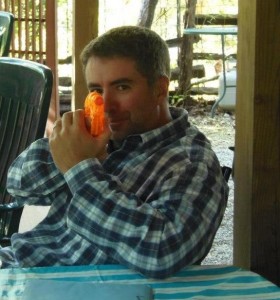






















 Picasso’s Les Desmoiselles d’Avignon (1907) and Pende sickness masks
Picasso’s Les Desmoiselles d’Avignon (1907) and Pende sickness masks














